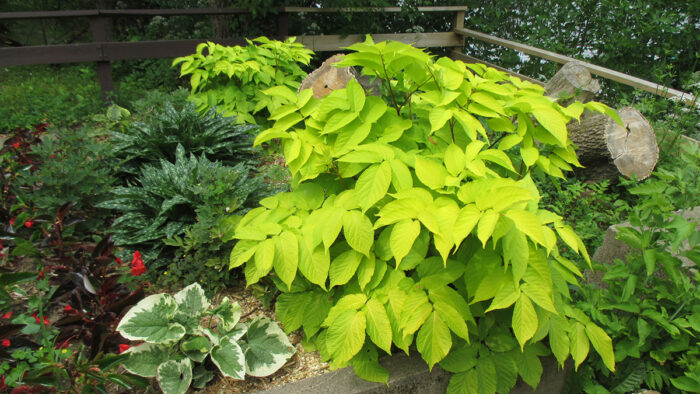
I’m a huge fan of ‘Sun King’ aralia (Aralia cordata ‘Sun King’, Zones 3–8) and wasn’t surprised when it was selected as the 2020 Perennial Plant of the Year by the Perennial Plant Association (PPA). I planted my first specimen back in 2011, and it continues to thrive and offer a gorgeous golden hue in a partially shaded location. This species is native to Japan, Korea, and east central and southern China. The ‘Sun King’ variety was found by famed plant hunter and horticulturist Barry Yinger and continues to show hardiness well into Zone 3. The ultimate mature size of ‘Sun King’ is still in question, but I’ve now seen it over 6 feet tall in the Midwest and think it can get even bigger. This herbaceous perennial achieves shrub-size stature in one season and is an amazing anchor plant, offering a golden, subtropical feeling to gardens.
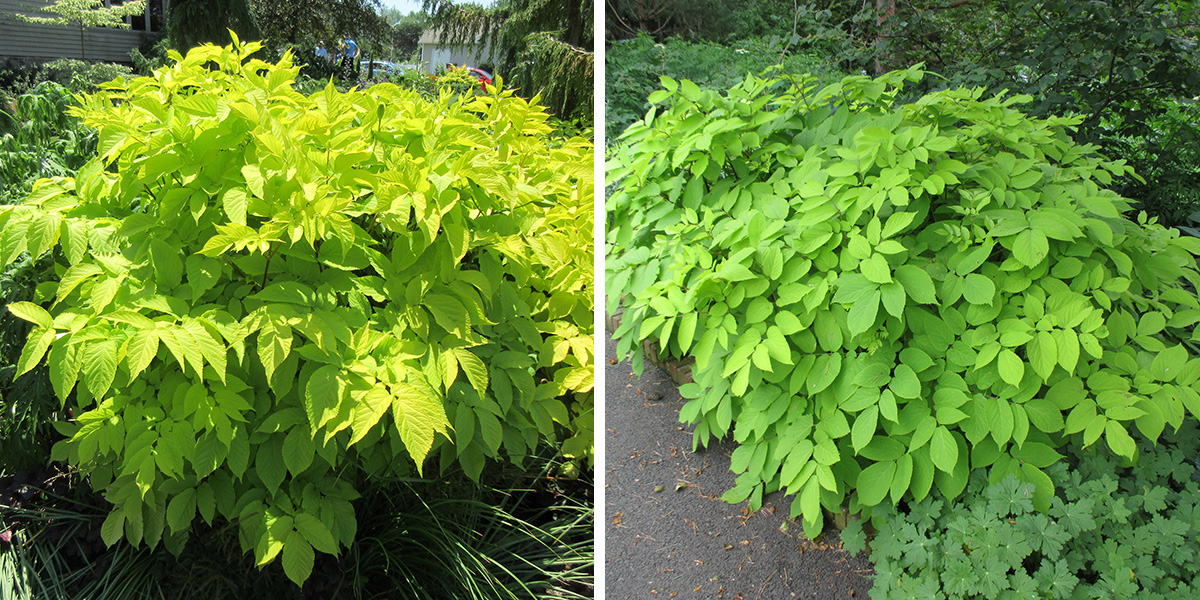
Ideal conditions
Plant ‘Sun King’ aralia in fertile, moist soil that is well drained. This plant will not be robust in areas with significant root competition, so find a nice spot for the plant to get established, and remember that moisture is essential for success. Provided with dappled sunlight, the bold, compound leaves will continue to be bright gold over the summer. The most vivid coloration is in early spring and in fall. In deeper shade, the plant looks chartreuse, which is still attractive. Specimens in full sun may get a bit washed out, with whitish leaves, and are prone to leaf burn by late summer without adequate water. Some amount of shading will maintain leaf integrity and vigor over the entire growing season.
Exceptional features
‘Sun King’ aralia has pretty reddish stems and racemes of tiny white flowers that bloom from midsummer to early fall and attract bees. The numerous flower umbels have an interesting spherical shape on panicles above the foliage. Younger specimens typically won’t flower for a couple of years. After the flowers finish blooming, they become small clusters of dark maroon berries that are consumed by birds. This plant is also considered deer resistant, and I’ve rarely seen any insect or disease problems.
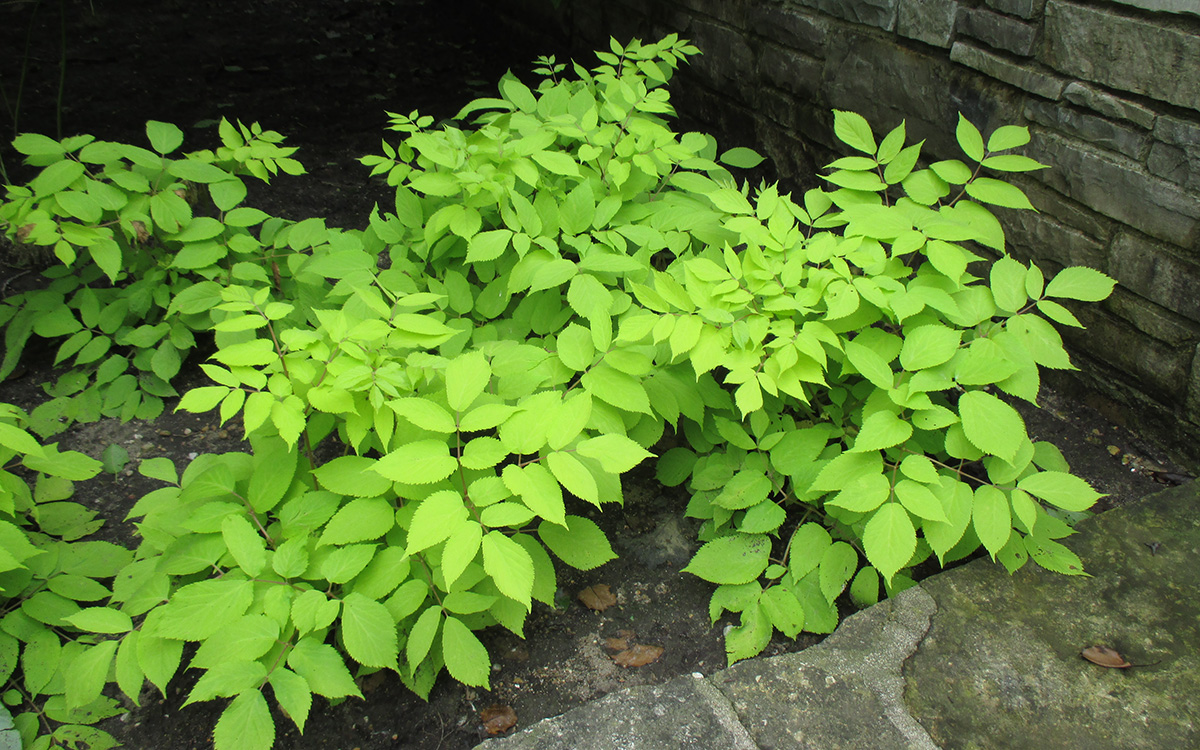
Delicious roots and shoots
Called “udo” in Japan, this species has long been cultivated for its edible young shoots. Considered a culinary delicacy, these shoots have a taste that is said to compare to lemony asparagus. In fact, in culinary circles this plant is also referred to as “mountain asparagus.” The white, fleshy roots can also be eaten and should used like parsnips. Avoid eating the berries, as they are not edible to humans. However, I would recommend doing some additional research if you’d like to eat this plant.
‘Sun King’ aralia has a wide range of domestic adaptability in our gardens. It has amazing structural value and offers lengthy, colorful foliage on a substantially sized plant. I believe this perennial will have a permanent spot as a staple for its durability and visual effect.
—Mark Dwyer, former director of horticulture at Rotary Botanical Gardens in Janesville, Wisconsin, operates Landscape Prescriptions by MD.
Fine Gardening Recommended Products
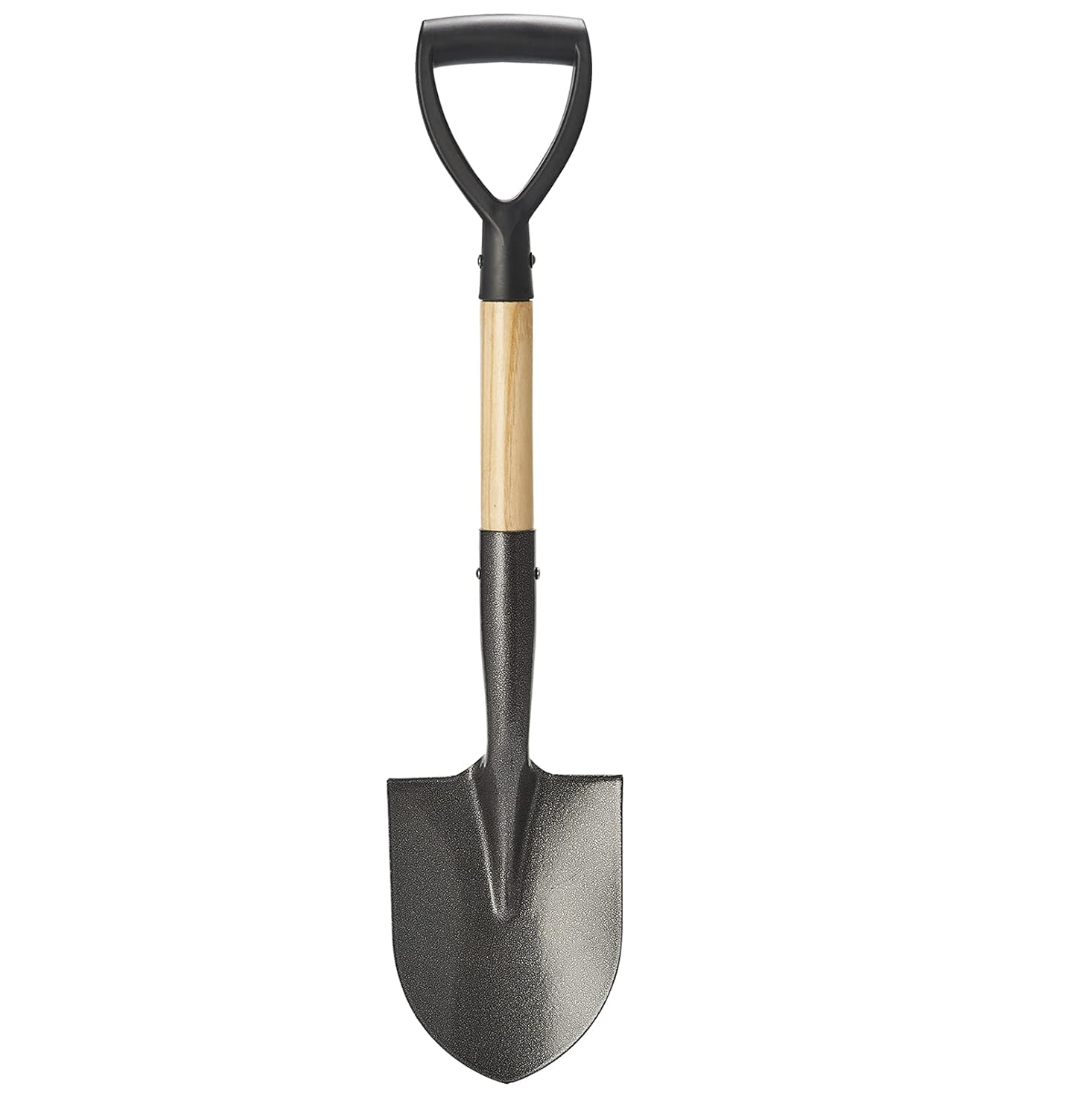
Corona® Multi-Purpose Metal Mini Garden Shovel
Fine Gardening receives a commission for items purchased through links on this site, including Amazon Associates and other affiliate advertising programs.

Water Right PSH-100-MG-1PKRS 400 Series, 100-Foot, Olive Green
Fine Gardening receives a commission for items purchased through links on this site, including Amazon Associates and other affiliate advertising programs.
- 3 Pounds
- 1200"L x 0.43"W
- Manufactured in the USA

ARS Telescoping Long Reach Pruner
Fine Gardening receives a commission for items purchased through links on this site, including Amazon Associates and other affiliate advertising programs.






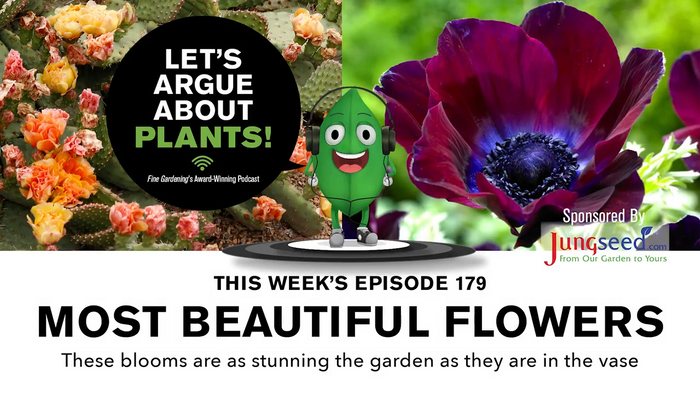

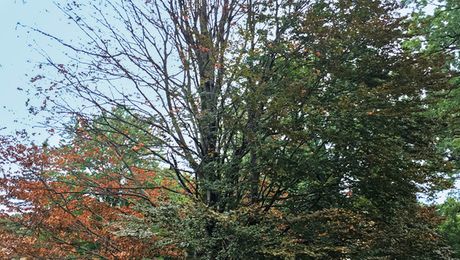










Comments
Log in or create an account to post a comment.
Sign up Log in